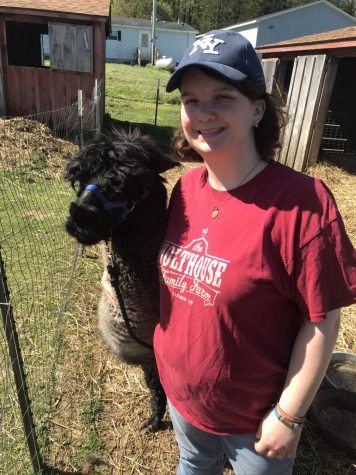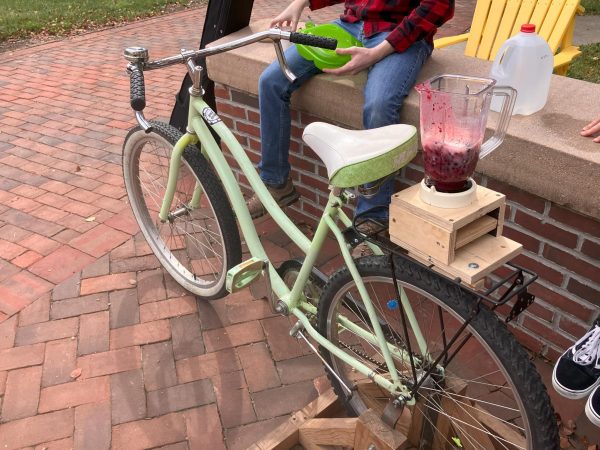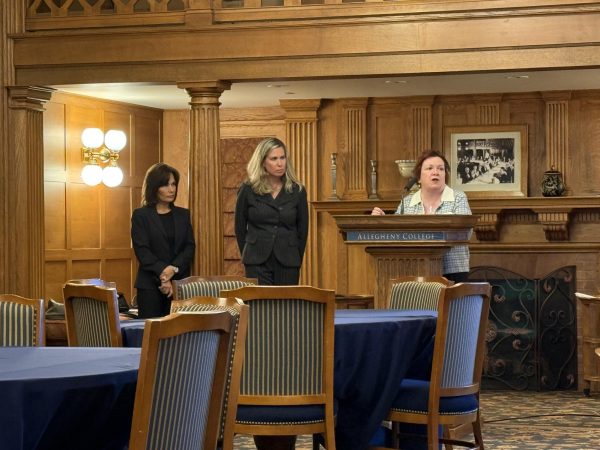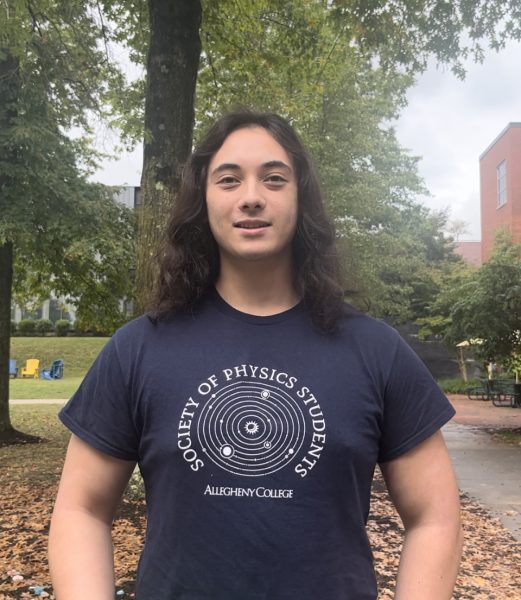ASG welcomes Assistant Dean of Student Conduct Hall
Continuing its discussion and planning after the September student protests, Allegheny Student Government welcomed Joe Hall to its general assembly meeting.
ASG invited Hall, assistant dean of student conduct, to give a presentation on last year’s student conduct report and hopes for this year. It also invited student representatives who helped lead the protests that occured on Sept. 17 into the meeting.
Hall presented a powerpoint filled with information and graphs explaining the amount of honor code violations during the 2017-18 academic year, along with the statistic differences between 2017-18 and previous years and among each class year.
“Our numbers were down in terms of we had 33 students go through the (honor code violation) process last year,” Hall said. “(This is) compared to 39 in the previous year and that includes those who go through the fast track process and those who go through a disciplinary hearing.”
Hall discussed the differences between the people on campus who report incidents — the highest amount of reports of non academic incidents being from public safety — and a lower amount from faculty and students. He also explained the new policy change being worked on for non academic incidents. In years before for non academic incidents, students were not eligible to take the fast track option, and the new policy change should help fix that according to Hall.
“In the past if a student had a non academic violation in their file whether accused or (the student) took responsibility, that case was not available to be considered on the fast track (to get their case handled quickly),” Hall said. “Now if the non-academic history is at the warning level they’re still eligible for the fast track (option).”
After Hall’s presentation, ASG moved onto cabinet reports, which included a discussion of mental health services available to students, and candidates for Public Safety Director which continue to come in. ASG President Camila Gomez, ’19, gave a report on a follow up email she received from Ron Cole, provost and dean of the college, after his visit at the last meeting.
Cole’s email gave answers to questions that senators asked during his visit at the last meeting, which included problems first-year students are having with not being given an advisor that works for the department that they want to major in. Questions from the meeting also included the problem with transfer students who come to Allegheny already having earned associate degrees through their high school.
“We’ve asked admissions counselors to update students more on policies so they have realistic expectations for when they come,” Gomez said.
The rest of the meeting involved the normal adviser report from ASG adviser and Associate Dean of Students for Wellness Education, Gretchen Beck. Beck gave ASG an update on the campus master plan for continuing updates of buildings around campus and to continue to make things more sustainable. She also mentioned the shuttle transportation for over Thanksgiving Break, and encouraged students to sign up soon if they were in need of that. Most of the general assembly meeting focused on a discussion with some students that helped to lead the student protests back in September. These protests were due to students believing that they needed more information from administration when it came to reporting bias incidents. The students came to discuss how they felt about the responses they received afterwards and to ask for feedback from ASG. Discussion included the creation of a bias code like the honor code, and adding student voices to the current bias response team.
“So when we receive a bias report it goes to members of the bias response team,” Beck said. The current bias response team includes justin adkins, associate dean of students, April Thompson, dean of students, and Kristin Dukes, dean for institutional diversity.
Senators in the room agreed it would be beneficial to add student voices to this committee. They also agreed there were still problems and processes that needed to be talked through and changed, and that it was important for ASG to be a part of that process.
“We do talk a lot about being more open and accessible, and ask students to meet us halfway,” Gomez said. “Students are reaching out to us, let’s make sure that we reach back. It’s our duty and the opportunity that we’ve been waiting for. So let’s make sure we use this opportunity and actually are a part of this process.”

Sara Holthouse is a senior from Panama, NY. This is her third year/final semester on staff, where she has previously served as news editor for the past...





